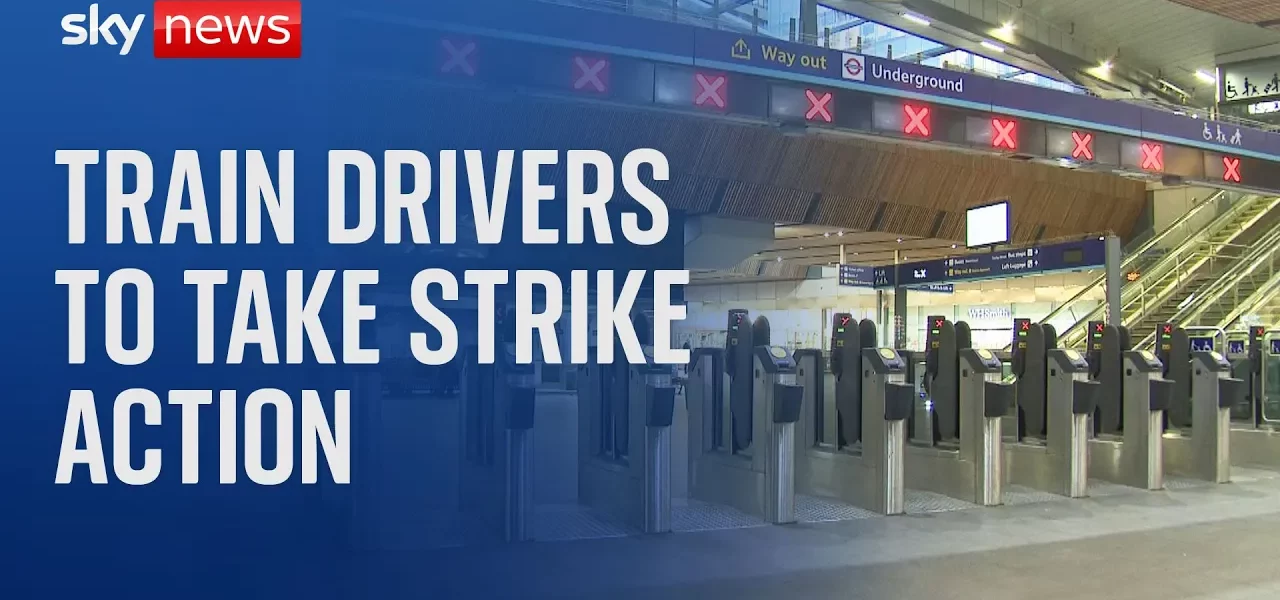Rail Passengers Face Disruption Amid Strike Actions on East Coast Mainline

Recent announcements regarding strike actions by train drivers on the East Coast Mainline have left rail passengers facing further disruptions. This situation comes on the heels of a significant pay deal for train drivers, raising questions about industrial relations within the UK transport sector.
Introduction
In a significant turn of events, rail passengers are bracing for more disruptions as train drivers on LNER’s East Coast Mainline have announced planned walkouts every weekend from the end of August through mid-November. This announcement comes shortly after the government unveiled a new pay agreement with driver unions, culminating a prolonged period of industrial action that has severely impacted train services across the UK. The dual nature of these disputes—one over pay and the other concerning alleged workplace bullying—poses a complex challenge for authorities and passengers alike.
The Disruption Timeline
As the situation unfolds, it is crucial to understand the timeline and implications of the planned strike actions.
Strike Schedule
- Start Date: End of August
- End Date: Mid-November
- Frequency: Every weekend
Impact on Passengers
The planned walkouts are expected to lead to significant disruptions for travelers, complicating weekend travel plans for thousands. With rail services often serving as a vital transport link for leisure and business travelers, the stakes are high.
Government’s Response and Recent Developments
The timing of the strike action announcement is particularly problematic for the government. Just days prior, the new Transport Secretary had announced a pay agreement with drivers, which included a proposed pay rise of over 14% over three years, aimed at resolving ongoing disputes. However, this pay agreement was quickly overshadowed by the announcement of strike actions.
Details of the Pay Deal
The pay deal, which was to be recommended to union members, represents a significant financial improvement for drivers after two years of on-and-off industrial action. Yet, the emergence of the strike reveals deeper issues at play.
Underlying Issues: Bullying Allegations
The union representing the drivers has indicated that the strike is not related to pay, but rather stems from allegations of bullying and breaches of agreements concerning work rotas. This highlights ongoing tensions in the workplace that extend beyond financial compensation.
Broader Context of Industrial Action
The current situation is part of a wider trend of industrial action across the UK, affecting various sectors including healthcare and border control.
Healthcare Sector
Recently, the government has also negotiated with junior doctors, offering a pay rise of 22% over two years. However, this offer is currently under review, with potential for further strikes looming.
Other Sectors Facing Discontent
- General Practitioners (GPs): Many have indicated they may take industrial action to seek better compensation.
- Border Force Staff: Expected to strike at the end of the month, adding to the uncertainty in the transport sector.
- Council Workers: May also ballot for higher pay, indicating widespread discontent across multiple public service sectors.
Political Implications
As negotiations continue, there are significant political ramifications. The Labour government claims it inherited several of these disputes and is actively working to resolve them. However, the persistent nature of industrial action raises questions about the effectiveness of current strategies and the potential for escalating tensions.
Future Negotiations
Upcoming negotiations with the RMT Union, which represents other rail workers, may lead to further complications. The union’s leader, Mick Lynch, has expressed the desire for comparable pay increases to those agreed for train drivers, highlighting the interconnected nature of these disputes.
Conclusion
The ongoing disputes within the rail sector reflect broader challenges facing the UK transport system. With multiple sectors poised for potential strikes, the government must navigate these complex issues carefully. As the situation develops, passengers are urged to stay informed and plan their travels accordingly. For more updates on transport and industrial relations, visit our related articles on the impact of strikes in the UK.
“`




